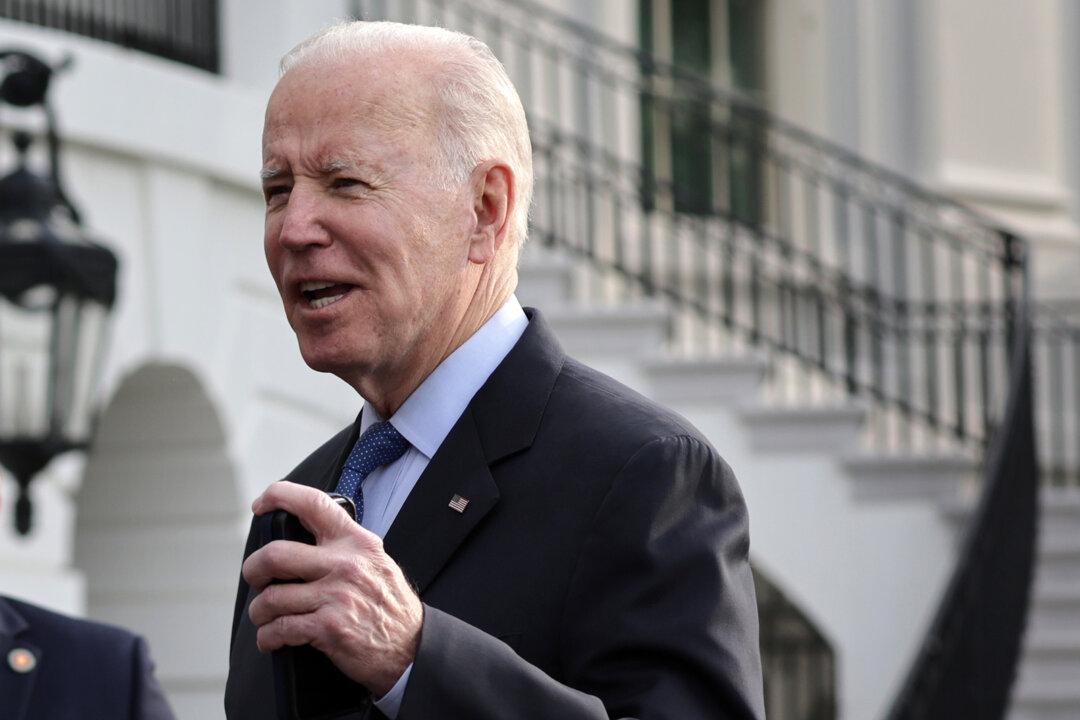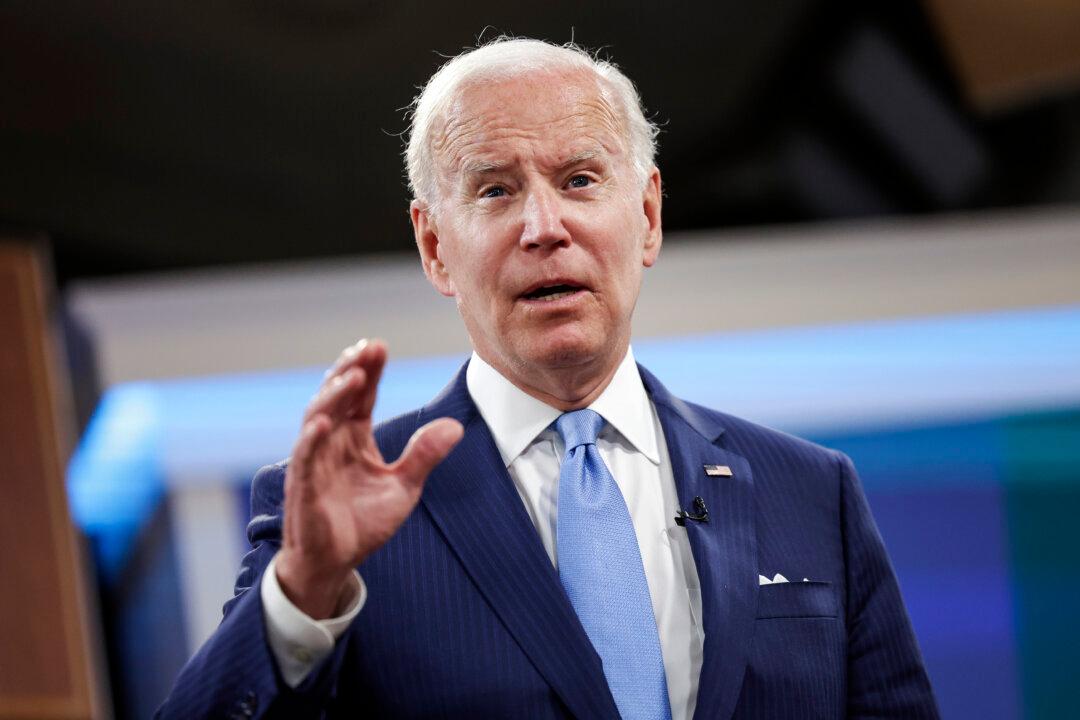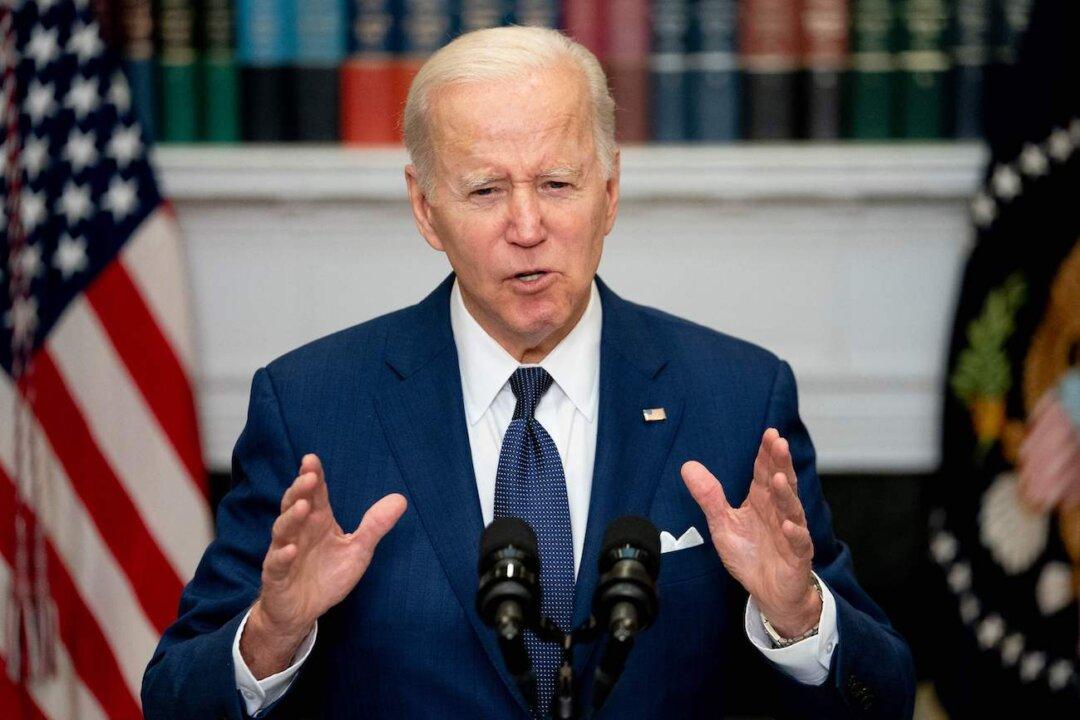President Joe Biden is advertising his 2023 budget proposal as being fiscally solvent, but critics say claims that it lowers the deficit are misleading.
When Biden first announced the budget plan Monday he listed “fiscal responsibility” as its first value, noting a more than $350 billion cut to the deficit last year and a projected $1.3 trillion cut this year.




